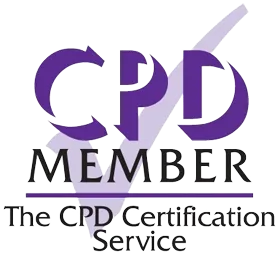29 Mar 2025
Recommended
Minimum 30 mins
Course
Access
Certification
Voiceover

Frailty is a complex condition affecting a significant proportion of older adults, characterised by reduced physiological resilience and an increased risk of adverse health outcomes. The Frailty Awareness course equips healthcare professionals with the knowledge to identify, assess, and manage frailty, fostering improved quality of life and care for frail individuals.
This course aligns with UK guidelines and explores person-centred approaches to frailty management, emphasising early identification and holistic care strategies. Participants will gain a comprehensive understanding of the Geriatric 5Ms framework, the application of screening tools such as the Comprehensive Geriatric Assessment (CGA), and evidence-based interventions that address physical, cognitive, and social dimensions. The course also highlights the importance of multidisciplinary collaboration, preventive measures, and ethical considerations in managing frailty.
By the end of the course, healthcare professionals will be empowered to deliver tailored, compassionate care that supports independence, mitigates risks, and improves outcomes for frail individuals in diverse healthcare settings.

 £20
£20
Learning Outcomes.
By the end of this course,participants will be able:
To define frailty and explain its significance in healthcare, including its epidemiological and pathophysiological aspects.
To identify and utilise frailty assessment tools, such as the Comprehensive Geriatric Assessment (CGA), for early detection.
To recognise the physical, cognitive, and social dimensions of frailty and their progression.
To manage frailty effectively across acute, community, and long-term care settings.
To collaborate within multidisciplinary teams to implement tailored interventions and promote continuity of care.
To employ preventive and ethical strategies, including lifestyle modifications and end-of-life care considerations, in supporting frail individuals.
Course
Contents.
01
Definitions, epidemiology, and contributing factors.
03
Physical, cognitive, and social determinants of frailty and their impact.
05
Coordination of interventions, including medication reviews, physical therapy, and nutrition.
08
Use of telehealth, assistive devices, and emerging technologies in frailty management.

06
Role of exercise, nutrition, and lifestyle modifications in reducing frailty risk.
09
Ensuring continuity and quality during transitions between care settings.
02
Geriatric 5Ms framework, screening methods, and CGA.
04
Strategies for acute, long-term, and community care.
07
Supporting caregivers, end-of-life care, and addressing social isolation.
10
Engaging patients and families in care planning and self-management.
This course provides healthcare professionals with the skills and knowledge to identify, assess, and manage frailty effectively. Through evidence-based interventions, multidisciplinary collaboration, and a focus on prevention and ethical care, participants will be better equipped to enhance independence and quality of life for frail individuals. The course promotes patient-centred care in alignment with UK guidelines, ensuring improved outcomes across healthcare settings.
 Summary
Summary


